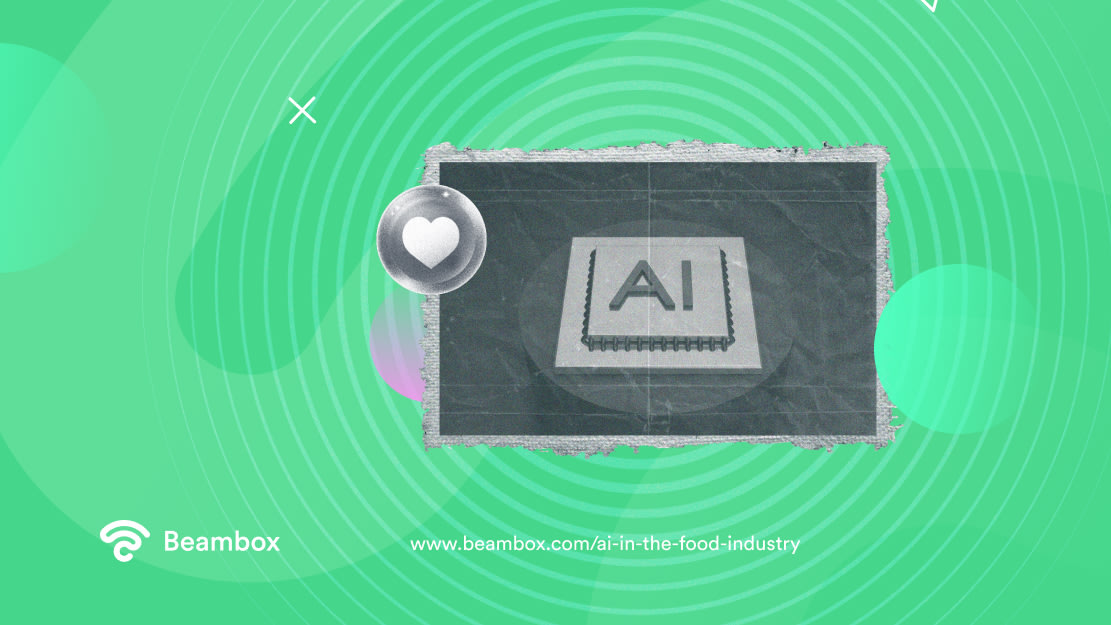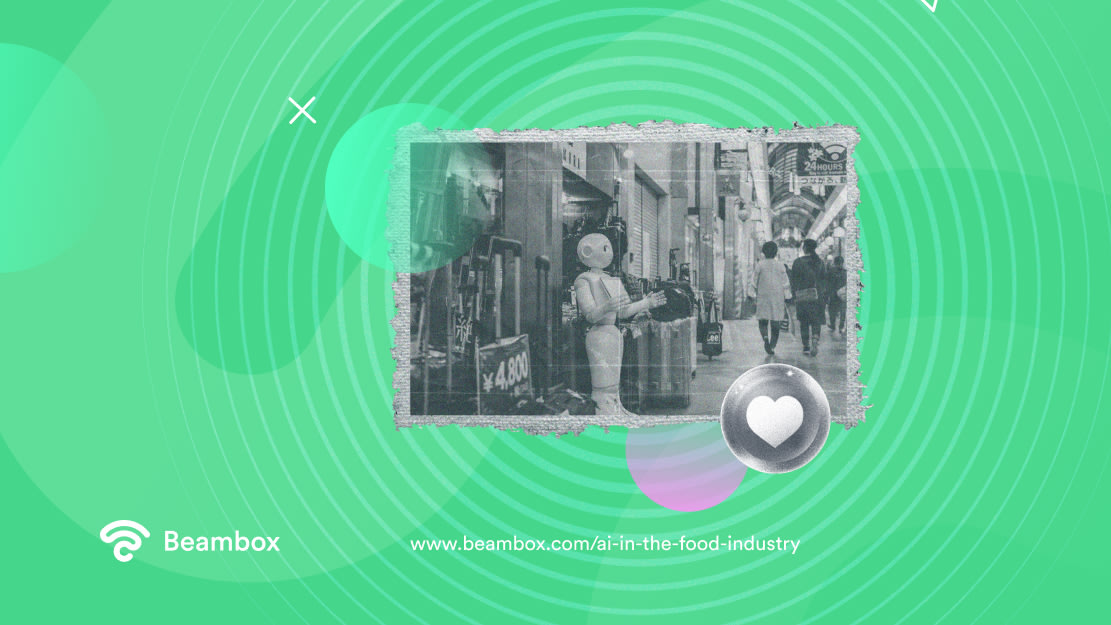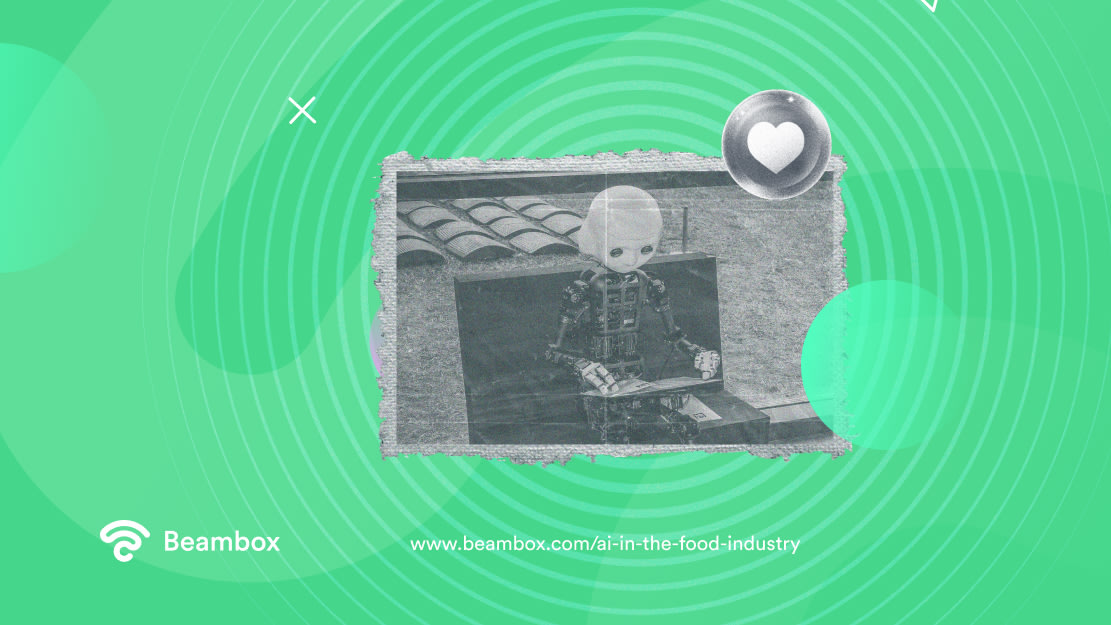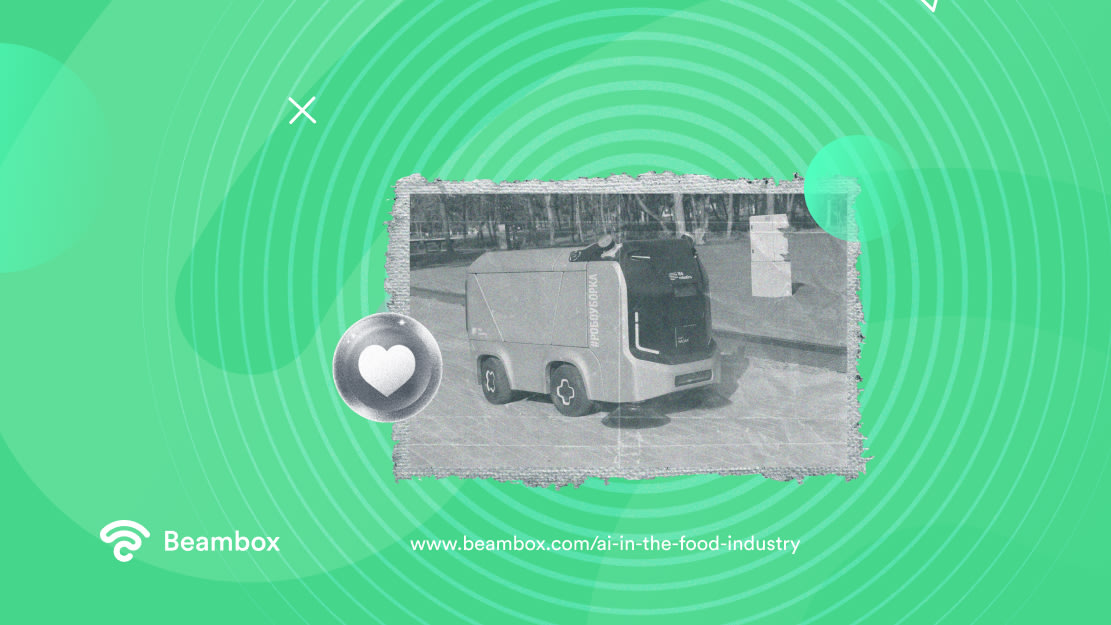AI in the Food Industry: Jumping on the Bandwagon
Artificial intelligence is taking over all aspects of life, leaking into the food industries; even restaurants have AI. AI in the food industry is something we will see more and more of as time progresses.
We can use it in every stage of the food business. We can use it to reduce food waste, improve food safety, and meet consumer preferences better. Its versatility means it is excellent across all stages of the food supply chain —from food manufacturers to customer plates. It has the potential to impact customer experience in the hospitality industry greatly.
In this guide, we’ll take you through everything you need about AI and its place within the industry. It’s like hopping on a water slide; you can’t fight the snowballing of artificial intelligence in the food industries. Let’s jump on the AI bandwagon together.

How Do People Use AI in Restaurants?
It can seem mysterious for those new to artificial intelligence in food industry businesses. Your first thought is likely: how do people even use AI in restaurants? What can AI actually bring to the world of food business? The answer, of course, is a lot.
Firstly, people can use AI in restaurant settings through customer service. This could be using AI chat assistance to take bookings and answer queries. On a more radical level, some restaurants are even using robots to take orders. Conversational AI is definitely on the rise and is beginning to hold its ground against human intelligence. This is ideal for restaurants to cut staffing costs and tackle turnover rates and chronic staff shortages.
AI is also valuable in reducing food waste and storing food. It helps ensure food safety and can help you calculate inventory management. Artificial intelligence is brilliant with algorithms and transactions. It reduces the margin of human error for things like order accuracy. It can also help forecast demand, inventory predictions, and prices.
Finally, AI can help in the food production stage - right at the beginning of the food supply chain. Things like food technology and machinery can revolutionize how we make our food, increasing things like quality and shelf life. This then has a knock-on impact on restaurants, who get better products. In the product development stage, you notice the most AI development, incorporating artificial intelligence on a profitable scale. AI is also trickling down through restaurant businesses, playing on a strong sense of novelty appeal.

Why Use AI in the Food Service Industry
The most obvious answer to why you should use AI in the food service industry is that everyone is. You don’t want to get left behind on a curve that is only on an upward trajectory anyway. The sooner you bite the bullet, the better your results will be. However, there are more specific benefits to investing in AI in the industry. Let’s look at the top reasons why you should invest in artificial intelligence.
It Limits Waste
Limiting waste is vital for improving your overall turnover. It benefits you by helping your business avoid throwing money down the drain. Simple things like inventory management can overcome the loss of profit from food wastage. It also helps the environment and makes your food business more sustainable. For instance, reducing food orders and therefore reducing wastage of plastic packaging.
It Gives You Novelty Appeal
Next up is that it gives you novelty appeal - luring in extra customers. AI is still a novelty. It is fresh, exciting, and cutting-edge. And if you want to try something new as a customer, an AI restaurant or cafe is on the cards. Ensure that any artificial intelligence you invest in resonates with your customer base. For instance, with robot servers, an animal-character chatbot for a vegan restaurant, or an interactive menu for a sustainable restaurant.
It Controls Your Reputation
Using AI also manages your reputation and keeps customers happy. This is really effective when managing your food business long-term. Little things like having AI phone call answering or chatbot services for instant answers can transform customer satisfaction. Customers get grouchy and distrustful when kept waiting. This is why large businesses spend millions on hiring staff to respond ASAP and work in customer service. AI is the perfect alternative: cheaper and with fewer human restrictions.
AI can highlight negative reviews and help you conduct damage limitation. It can even create sample messages and formats for you to use. It is the ultimate backup solution and a great way to manage your reputation proactively.

It Reduces Your Workload
AI also reduces your workload. Taking on tasks like reviewing your social media platforms, scheduling staff rota, or managing inventory frees you up. The most significant gift of AI is time. It gives you the time to handle other jobs that require human intelligence. The most outstanding leaders know how to delegate; with AI, that’s precisely what you’re doing.
It Boosts Profit
Finally, AI rockets your profit. Your business gets the TLC that humans can’t provide through all of these collective benefits. AI is remarkable for scaling businesses quickly, improving systems, and freeing up your time to rise. Investing in AI - which will likely be tax deductible anyway - boosts your potential for a higher turnover.

AI Reputation Management
AI reputation management is one of the most valuable uses of AI in the food industry. A reputation manager can be costly, and AI is how to cut costs on this without investing hours. An AI ‘reputation manager’ crawls your online review sites and social media presence, reacting to new interactions. It can respond automatically to resolve conflict and dispel negativity before it takes hold. And by enabling a faster response time, it better maintains your sense of professionalism and digital reputation.
Nobody on Earth can be accessible 24 hours around the clock to manage their online reputation. And this is especially the case for restaurant owners - we all know how busy those shifts get. You don’t get a minute to stop. Let alone check your phone to calmly and professionally respond to 18 reviews. Outsourcing reputation management is one of the wisest uses of AI.
There are three pillars of reputation: organizational reputation, brand reputation, and stakeholder reputation. Organizational is what the public thinks about your restaurant. The brand is how people view your restaurant as a brand with values and associations. Stakeholder reputation is how the people investing in your restaurant view it. Reputation management is like trying to hit balls from every direction. If you can at least take your online reputation off your worry list, you’ll soon see all three improve.
Reputation managing AI technology is one of the best investments you can make in artificial intelligence. We will talk about some other great tools you can use in addition to it below.

AI Tools for Your Restaurant
AI tools for your restaurants are fantastic. As we explained above, with reputation management, artificial intelligence is one of the best things you can invest in. And as a whole, AI tools are really accessible steps you can take to improve your business. They automate specific processes and are cheaper than outsourcing to ‘real’ people. Budget-friendly and effective - what more could you want?
Chatbots for Booking Assistance and Restaurant Requests
Chatbots are a super widespread use of AI across all sorts of industries. The food industries are especially great for this, though. This is because chatbots can provide instant details on booking availability, allergen information, and closing times. There’s no reason why AI can’t beat human intelligence for these things. It is a significant investment. Imagine not having to deal with all those small inquiries - bliss.
Investing in a chatbot system costs as little as $0 to $500 per month. No matter your food business size, this is a reasonably priced investment. It can make all the difference and save you money in the long term by reducing unnecessary work hours.
Inventory Management
Inventory management is one of those mundane tasks that are catastrophic if they go wrong. Correctly managing inventory is vital for limiting food waste and ensuring food safety and business profitability. You don’t want to risk any of these. And by investing in an AI tool to manage your inventory, you can limit the risk of human error. It is a fantastic deal; you don’t get mundane tasks, and accuracy levels increase.
This is one of the most underrated AI tools you can invest in for your restaurant. It might not be glamorous, but it will get brilliant results. Sometimes it is the unglamorous jobs that need doing.
Robot Servers
This is one of the most dramatic and radical AI steps you can take. However, you’ve likely already seen early models of the robot servers. You’ll probably also have seen the robot delivery machines taken to the streets over the past few years. Robot servers will get more commonplace as the years go on. They are an excellent solution for understaffing and minimizing server duties.
If you want the latest versions, these robots cost between $12,000 and $15,000. However, comparing this to the cost of hiring a server is a great deal. Plus, you get the extra bonus of novelty marketing. People will travel to your restaurant for the experience of robot service.
Phone Answering
Everyone needs help to answer their business phone sometimes. And when you are in the middle of a manic shift, you can bet you’ll be in that boat. This is why AI phone answering is so helpful. You can relax knowing your customers will be met promptly and professionally by phone. What more could they want? They will get immediate customer service, and you’ll get a break. Perfect. It is the ideal solution for busy food business owners.
Staff Scheduling
This one is a big deal, especially with the ongoing short-staffing crisis in the hospitality industry. Scheduling your staff rota is quite the balancing act, as every restaurant manager and owner will know. It is a delicate balance.
With AI, though, this calculates your exact number of required staff. It uses insights and syncs with forecasting and booking systems to predict a dream staff schedule. It can even send out schedules to make staff aware of their shifts. Not only is staff scheduling time-consuming, but it is also something often impacted by human error. Using AI eliminates both of those issues.

Final Thoughts: What To Budget for AI in the Food Industry
The golden question - what should you budget for AI? It is a great question, and in short, it depends massively on what you want to invest in. If you want an order-taking robot, the answer is between $12,000 and $15,000 as an upfront purchase. If you just want a chat assist bot, you’ll fork out between $0 and $500 monthly.
There are levels to incorporating AI into your restaurant business, so the best way is to establish a budget first. You can then see what AI tools fit into your budget. It is mostly common sense; everyone knows a real robot costs more than chat assistance.
It is definitely a worthy investment. You’ll attract more customers through novelty additions using AI, and you’ll also streamline your business. Who doesn’t want a more efficient and profitable food business? Budgeting for AI is worth your time. It is a huge part of the future, so you may as well get ahead of the game.
While revolutionizing your business, you should also look into the power of guest WiFi marketing. Technology is hugely important. And just as we are starting to see AI development, guest WiFi is now a definite expectation for the customer experience. People want to join your WiFi immediately, whether to scroll social media or work remotely with their coffee.
Using Beambox, you can monetize this by adding a captive portal system. The captive portal acts as a sieve, collecting valuable details before guests can access your WiFi.
Our WiFi marketing platform is how you can utilize the power of your guest’s WiFi and the customer demand for connection. Start your Beambox free trial now. Forget just using AI in the food industry; you can start with a captive portal system costing next to nothing.
Get Started With Free WiFi Marketing
Beambox helps businesses like yours grow with data capture, marketing automation and reputation management.
Sign up for 30 days free


